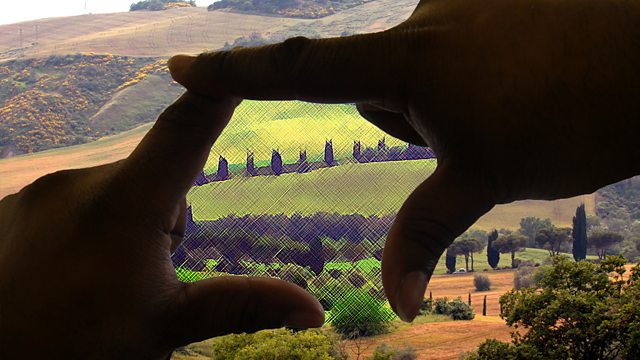How we Perceive Art
What goes on in the brain when we see a painting or a film? With guests Okey Ndibe, Tiffany Jenkins and Arthur Shimamura.
Why can some artworks leave us awestruck? While others leave us cold? And how far is art determined by cultural bias? Bridget Kendall asks novelist Okey Ndibe, cultural sociologist Tiffany Jenkins, and cognitive neuroscientist Arthur Shimamura to try and pinpoint what happens when we perceive art.
Photo Illustration by Shan Pillay
Last on
![]()
Beauty and the Brain
Dr Tiffany Jenkins explores what neuroscience knows about art
Clip
-
![]()
The function of art in the Igbo tradition
Duration: 01:26
Chapters
-
Nigerian born novelist Okey Ndibe
Contrasting art values in Nigeria and New York
Duration: 12:57
Cultural sociologist Dr Tiffany Jenkins
Why we should all be art critics
Duration: 10:03
60 Second Idea
A memorable introduction
Duration: 05:52
Professor of Psychology Arthur Shimamura
How our brain views film and painting
Duration: 11:38
Okey Ndibe
![Okey Ndibe]() Okey Ndibe is a Nigerian born novelist, political columnist and essayist. Foreign Gods, Inc is his second novel, and tells the story of a New York based Nigerian cab driver who sets out to steal the statue of an ancient war deity from his home village and sell it on the US art market. Many of these sacred African objects would previously have been regarded as worthless by the Christian missionaries, but are now highly fashionable and the playthings of the very rich. Through the novel, Okey explores the arbitrary way value is assigned to art.
Okey Ndibe is a Nigerian born novelist, political columnist and essayist. Foreign Gods, Inc is his second novel, and tells the story of a New York based Nigerian cab driver who sets out to steal the statue of an ancient war deity from his home village and sell it on the US art market. Many of these sacred African objects would previously have been regarded as worthless by the Christian missionaries, but are now highly fashionable and the playthings of the very rich. Through the novel, Okey explores the arbitrary way value is assigned to art.Tiffany Jenkins
![Tiffany Jenkins]() Dr Tiffany Jenkins is a cultural sociologist, writer and commentator. She is writing Keeping Their Marbles, which charts how museums acquired their objects – at times with highly questionable methods and means. Her next book is the edited collection: Political Culture, Soft Interventions and National Building. She is also the presenter of the Discovery programme, Beauty and the Brain for the ���˿��� World Service. She argues we should develop a much more critical approach towards art because otherwise we are less likely to recognise and cultivate new and important art.
Dr Tiffany Jenkins is a cultural sociologist, writer and commentator. She is writing Keeping Their Marbles, which charts how museums acquired their objects – at times with highly questionable methods and means. Her next book is the edited collection: Political Culture, Soft Interventions and National Building. She is also the presenter of the Discovery programme, Beauty and the Brain for the ���˿��� World Service. She argues we should develop a much more critical approach towards art because otherwise we are less likely to recognise and cultivate new and important art.Arthur Shimamura
![Arthur Shimamura]()
Arthur Shimamura is professor of psychology at the University of California in Berkeley. His most recent research explores how the brain experiences art, particularly in relation to painting and film. He is particularly interested in the way knowledge and memory can control our sensory input through top down processing. He explains how this is especially evident in film if you look at the editing process and how it directs our reactions. He is the author of Experiencing Art: In the Brain of the Beholder.
60 Second Idea to Change the World: a Memorable Introduction
![60 Second Idea to Change the World: a Memorable Introduction]()
In our Sixty Second Idea to improve the world, the Nigerian born novelist Okey Ndibe suggests we find a new way of introducing ourselves to others through our favourite artworks or objects. So rather than just telling someone your name, adopt a piece of art or even just a tree or a flower, and explain what it reveals about you.
Broadcasts
- Sat 24 May 2014 21:06GMT���˿��� World Service Online
- Sun 25 May 2014 09:06GMT���˿��� World Service Online
- Mon 26 May 2014 02:06GMT���˿��� World Service Online
Do you think political or business leaders need to be charismatic? Or do you prefer highly competent but somewhat stern people?
Podcast
-
![]()
The Forum
The programme that explains the present by exploring the past









